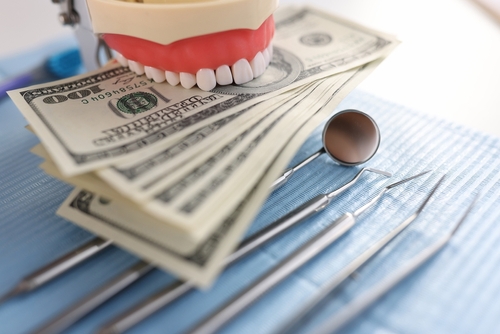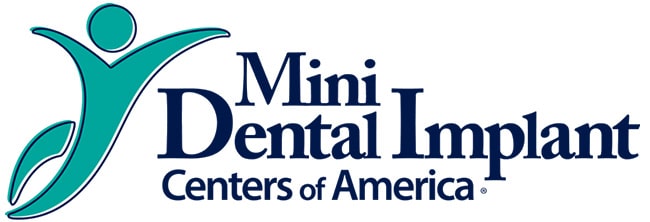One of the leading reasons people don’t seek necessary medical attention is fear of cost. A major medical or dental procedure could have a life-changing impact, but the price tag can be daunting at first glance. At Brockley Dental Center, we’re committed to making our dental services affordable. One lesser-known way that you can save on many of our restorative dental procedures is on your tax returns. Did you know that your dental implants could be tax deductible?
Understanding Dental Implants and Mini Implants
 Dental implants are one of the most versatile and effective ways to replace missing teeth. They are sturdy titanium posts anchored directly into the jawbone and can support different tooth restorations. We can use them to replace one tooth with a dental crown, multiple teeth with an implant-supported bridge, or a complete set of teeth with implant dentures. These options offer greater durability and functionality than the older traditional options. While traditional dental implants are effective, mini dental implants provide even more benefits.
Dental implants are one of the most versatile and effective ways to replace missing teeth. They are sturdy titanium posts anchored directly into the jawbone and can support different tooth restorations. We can use them to replace one tooth with a dental crown, multiple teeth with an implant-supported bridge, or a complete set of teeth with implant dentures. These options offer greater durability and functionality than the older traditional options. While traditional dental implants are effective, mini dental implants provide even more benefits.
Size is a key difference between these two types of implants. Mini dental implants are less than half the diameter of conventional implants—imagine the thickness of a toothpick compared to a pencil eraser. This narrow size allows us to place mini implants without incisions or stitches. Our minimally invasive technique helps shorten the healing process significantly and makes mini implants an option for patients who have already lost jawbone density.
If you’re worried that a smaller implant means it’s less durable, it doesn’t! Mini and conventional implants demonstrate equivalent success rates.
Another key benefit, especially when it comes to cost, is that mini dental implants are significantly less expensive than their traditional counterparts. This is because they require fewer office visits and a shorter healing period, making the entire process more affordable. When you choose mini implants, you get lower upfront costs and tax benefits. Keep reading to learn more.
Dental Implants Are Tax Deductible
The IRS offers a tax deduction for any “medical and dental expense you paid for yourself,” including “payments for treatments affecting any structure or function of the body.” You must file an Itemized Deduction, not the Standard Return, to claim this deduction. If you’re unfamiliar with this process, we highly recommend seeking the help of a tax professional.
In order for your dental implant expenses to be tax deductible, they must meet certain thresholds. First, any part of the implant cost that’s covered by your insurance or paid through a Health Savings Account (HSA) is not eligible to be included in your deduction. Next, you can only deduct the part of the implant cost that exceeds 7.5% of your Adjusted Gross Income (AGI).
To calculate your AGI, first determine your total income. Then, subtract “adjustments” such as self-employed taxes or healthcare premiums, student loans paid, contributions to retirement accounts, etc. Whether you’re taking the Standard or Itemized Deduction, you can find this number on Line 11 of Form 1040.
That final number is your AGI. Then, you need to calculate 7.5% of it to determine your deductible amount. For example, if your AGI is $50,000, then 7.5% of that number is the threshold we’re looking for: $3,750. You can only deduct the amount of your medical and dental implant expenses that exceed that final number. So, in this example, if your total implant cost was $15,000 and you had no other eligible expenses, your deduction would be $15,000 – $3,750 = $11,250. This is the amount you would claim on your tax return in this specific scenario.
Itemizing your deductions is most beneficial if your qualifying annual expenses are more than the standard deduction amount. If you’re unsure which strategy is best for your situation, a tax advisor can help.
Answering Other Financial Questions
If you are considering dental implants, rest assured that we will do whatever we can to help make your treatment expenses manageable. We work with many dental insurance providers and will help you maximize your benefits. When it comes to financing options, our lending partner, Care Credit, offers a variety of payment structures, with interest rates as low as 0% for some short-term plans. We’ll also perform a soft credit check. This won’t impact your credit score but will allow you to know where you stand before applying for financing.
Your Dental Implants May Be Tax Deductible! Learn More About Claiming Your Implants
If you’re interested in all the benefits that dental implants and mini implants offer, our office is happy to answer your questions. With a potential tax benefit and the lower cost of mini dental implants, replacing your missing teeth may be more affordable than ever. Reach out today to arrange a consultation with our experienced team and discover if mini dental implants are right for you.
